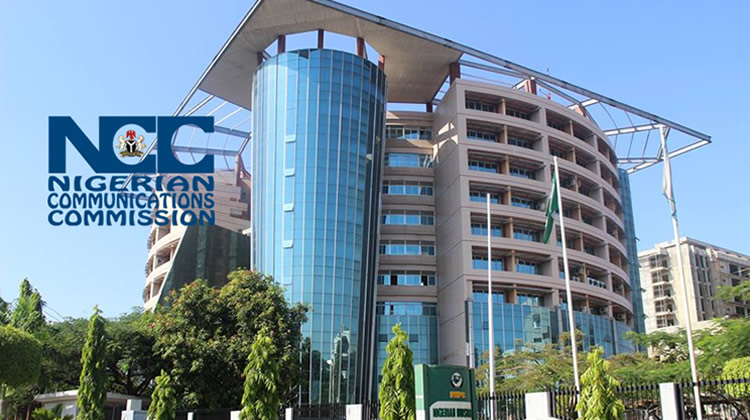The Nigerian Communications Commission (NCC) has said that the advent of Fifth-Generation (5G) network and its expansion in the country would drive increased energy consumption in the country.
Specifically, NCC said wireless service coverage requirement for 5G service will trigger high demand for data services, which will result in increased energy consumption for the network infrastructure especially the Base Transceiver Stations (BTS); Internet of Things (IoT); 5G Customer Premise Equipment (CPEs) and mobile devices.
The NCC Executive Vice Chairman (EVC), Prof. Umar Danbatta, who disclosed this in Abuja, yesterday, at 2023 World Consumer Rights Day with the theme:
“Empowering Consumers through Clean Transition,” said this requires the country to look for green and sustainable power solutions required for the connectivity of IoT devices and network optimisation.
Danbatta said all over the globe, telecoms firms are among the biggest energy users, as a result of the stiff industry competition, which causes them to try to satisfy their consumers by providing higher-speed networks.
According to him, with the rising utility costs, it is critical for companies to reconsider the sustainability of their operations by lowering the operational impact on the environment, adding, “this is more so because it has been found that implementing energy efficiency measures could potentially reduce the operating costs of telcos by up to 20 per cent.”
He said some of these energy-efficiency measures include the redesign of the Radio Access Networks (RAN) of Base Stations, which were initially built to maximise connectivity, not energy efficiency. “More than 75 per cent of the time, the radio base station resources remain unused because of the hardware components activated at all times to transmit system information and synchronisation and reference signals.
“Therefore, to avoid waste heat, some of 5G’s newest RAN is equipped with an energy-saving measure allowing for the automatic switching of components. Some other energy efficiency measures can also include the use of renewable energy sources (hydrogen, wind, solar etc.) to supply the energy needed.”
The Commission said as a responsive organisation, it has been proactive in responding to the realities and challenges posed by the impact of using fossil fuel as a power source in the telecommunications industry.
“In this regard, the situation in Nigeria is peculiar. Owing to the overall energy challenges of the nation, the 54, 000 BTS scattered across the country depend on diesel generators with the attendant noise and environmental pollution. Some of these BTS operate on diesel generators for 24 hours across seven days of the week in some locations. Therefore, transitioning to a renewable energy source like solar power will significantly reduce the menace of pollution from individually-powered generators. This will be zero carbon emission from the BTS just as noise pollution would be a thing of the past,” Danbatta stressed.
Consequently, the EVC said to minimize the environmental impacts of climate change caused by carbon emissions, telecoms network providers need to come up with a modern and more energy-efficient network. He said this includes the use of Solar-powered cells, wireless electricity or a hybrid system to replace higher energy-consuming equipment that will lead to a reduction in capital expenditure (CAPEX) and OPEX and by implication, a reduction in service costs to consumers.
According to him, transitioning to renewable energy is predicted to result in a lower cost of operation, as operators will be able to save on the cost of diesel, which accounts for a large chunk of the costs incurred by these licensees.
He said the competition that the commission consistently promotes among industry players has a natural consequence of the savings on the cost of diesel passed on to consumers, which would potentially result in lower prices for services.
“Therefore, I want to use this opportunity to call on MNOs and Original Equipment Manufacturers (OEMs) to come up with innovations in sustainable energy in line with the International Telecommunications Union (ITU) Recommendation ITU-T L.1380 on smart energy solutions for telecoms sites’ performance, safety, energy efficiency and environmental impact. This is vital to address the challenges of climate change and environmental degradation,” Danbatta noted.
In this regard and for the industry stakeholders, especially consumers, to benefit from the advantages of renewable energy, the Commission said it is working on a policy to encourage the adoption of renewable energy sources by operators. He said when operational, the policy will ensure that using clean energy sources for power has the potential to resolve the three key needs of the telecoms industry, namely: reduction in diesel usage; expansion of telecom infrastructure to off-grid areas; and reduction in carbon emissions.
Further, Danbatta said the Policy on renewable energy in the telecoms sector is an additional layer of other policies that contribute to protecting the environment, saying that in recent years, the the commission introduced a regulatory framework on infrastructure sharing and collocation among the licensees which has encouraged operators to fully maximize their already-deployment infrastructure.
“By sharing infrastructure, some operators do not need to entirely build a telecoms site in an area where another operator had deployed one. With the challenge of inadequate public electricity supply in Nigeria, telecom companies rely on diesel-powered generators to keep their telecom sites live round-the-clock. A regulatory framework such as infrastructure sharing, and collocation is helping in this regard and the Commission has recorded appreciable adoption of this regulation,” he noted.


